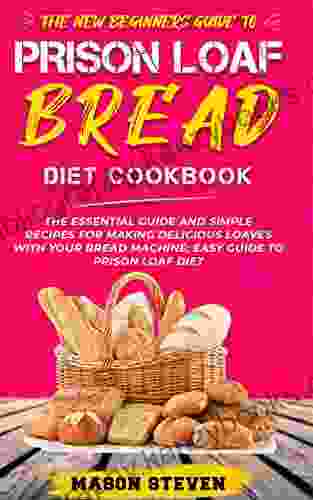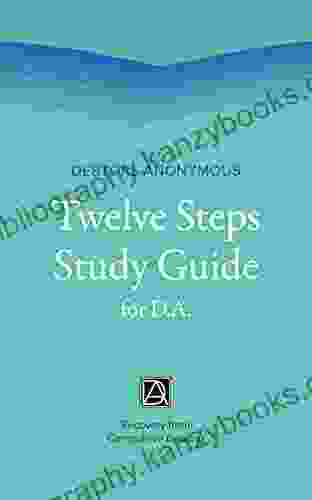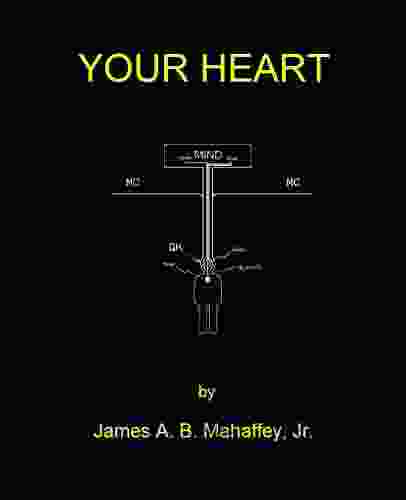Debtors Anonymous Twelve Steps Study Guide: Your Path to Financial Recovery

Are you struggling with the devastating effects of financial addiction? Do you feel trapped in a cycle of debt, shame, and despair? If so, you are not alone. Millions of people around the world are grappling with this debilitating condition.
4.9 out of 5
| Language | : | English |
| File size | : | 314 KB |
| Text-to-Speech | : | Enabled |
| Screen Reader | : | Supported |
| Enhanced typesetting | : | Enabled |
| Word Wise | : | Enabled |
| Print length | : | 392 pages |
| Lending | : | Enabled |
But there is hope. The Debtors Anonymous Twelve Steps Program offers a proven path to recovery from financial addiction. The Twelve Steps, adapted from the Alcoholics Anonymous program, provide a framework for understanding and overcoming this complex disease.
This study guide is designed to help you work through the Twelve Steps at your own pace. It includes:
- An overview of each step
- Questions for reflection and discussion
- Exercises to help you apply the principles of the Twelve Steps to your own life
This guide is not a substitute for attending Debtors Anonymous meetings. However, it can be a valuable resource for those who are unable to attend meetings regularly or who want to supplement their meeting attendance.
Step 1: We admitted we were powerless over money and that our lives had become unmanageable.
The first step of the Twelve Steps is admitting that we are powerless over money. This means recognizing that we cannot control our spending or financial behavior on our own. We may have tried to control our finances in the past, but our efforts have always failed. This is because financial addiction is a disease that affects our entire being, not just our minds.
Once we admit that we are powerless over money, we can begin to let go of the illusion of control. We can stop trying to fix our financial problems on our own and start seeking help from others.
Admitting that our lives have become unmanageable is also an important part of this step. This means recognizing that our financial addiction has had a negative impact on our lives. We may have lost our jobs, our homes, or our relationships. We may be struggling with depression, anxiety, or other mental health problems. Once we admit that our lives have become unmanageable, we can start taking steps to make a change.
Step 2: Came to believe that a power greater than ourselves could restore us to sanity.
The second step of the Twelve Steps is coming to believe that a power greater than ourselves can restore us to sanity. This power can be anything that we believe in, such as God, nature, or the universe. It is not important what we believe in, but that we believe in something that is greater than ourselves.
When we come to believe that there is a power greater than ourselves, we can start to let go of the need to control everything. We can start to trust that there is something or someone else looking out for us. This can give us the strength and courage to make the changes necessary to recover from financial addiction.
It is important to note that the Twelve Steps do not require us to believe in a specific religion. We are free to believe in whatever we want, as long as we believe in something that is greater than ourselves.
Step 3: Made a decision to turn our will and our lives over to the care of God as we understood him.
The third step of the Twelve Steps is making a decision to turn our will and our lives over to the care of God as we understood him. This step is about surrendering our lives to a higher power. It is about letting go of our own selfish desires and ambitions and putting our lives in the hands of something greater than ourselves.
Making this decision can be difficult, especially if we have been used to controlling our own lives. However, it is an essential step in the recovery process. Once we surrender our lives to a higher power, we can start to experience the peace and freedom that comes with letting go.
It is important to note that this step does not mean that we have to give up our own free will. We are still free to make choices, but we now make those choices in alignment with our higher power. This can help us to make better decisions and live more fulfilling lives.
Step 4: Made a searching and fearless moral inventory of ourselves.
The fourth step of the Twelve Steps is making a searching and fearless moral inventory of ourselves. This step is about taking a close look at our lives and identifying the areas where we need to change. It is about acknowledging our mistakes and shortcomings without judgment or self-pity.
Making a moral inventory can be a difficult and painful process. However, it is an essential step in the recovery process. Once we have a clear understanding of our own strengths and weaknesses, we can start to make the changes necessary to improve our lives.
It is important to be honest with ourselves during this step. We cannot afford to sugarcoat our mistakes or downplay our shortcomings. The more honest we are with ourselves, the more effective our recovery will be.
Step 5: Admitted to God, to ourselves, and to another human being the exact nature of our wrongs.
The fifth step of the Twelve Steps is admitting to God, to ourselves, and to another human being the exact nature of our wrongs. This step is about taking full responsibility for our actions. It is about acknowledging the harm we have caused ourselves and others.
Making this admission can be difficult and humiliating. However, it is an essential step in the recovery process. Once we have admitted our wrongs, we can start to make amends and move on with our lives.
It is important to be specific when we make our admission. We cannot simply say that we are "sorry" or that we "made mistakes." We need to be clear about the specific ways in which we have wronged ourselves and others.
Step 6: Were entirely ready to have God remove all these defects of character.
The sixth step of the Twelve Steps is being entirely ready to have God remove all these defects of character. This step is about letting go of our old ways of thinking and behaving. It is about being open to change and allowing our higher power to work in our lives.
Being entirely ready to change can be difficult, especially if we have been stuck in our old ways for a long time. However, it is an essential step in the recovery process. Once we are ready to change, we can start to experience the peace and freedom that comes with living a life free from addiction.
It is important to remember that we cannot change ourselves on our own. We need the help of our higher power to remove our defects of character.
Step 7: Humbly asked Him to remove our shortcomings.
The seventh step of the Twelve Steps is humbly asking our higher power to remove our shortcomings. This step is about asking for help. It is about admitting that we cannot do it on our own and that we need the help of something greater than ourselves.
Asking for help can be difficult, especially if we are used to being self-sufficient. However, it is an essential step in the recovery process. Once we ask for help, we can start to receive the support we need to make lasting changes in our lives.
It is important to be specific when we ask for help. We cannot simply ask God to "remove our shortcomings." We need to be clear about the specific ways in which we want to change.
Step 8: Made a list of all persons we had harmed, and became willing to make amends to them all.
The eighth step of the Twelve Steps is making a list of all persons we had harmed, and becoming willing to make amends to them all. This step is about taking responsibility for our actions and making things right with the people we have wronged.
Making amends can be difficult and uncomfortable. However, it is an essential step in the recovery process. Once we have made amends, we can start to heal the relationships that have been damaged by our addiction.
It is important to be sincere when we make amends. We cannot simply apologize for our actions and then move on. We need to be willing to make things right, even if it means sacrificing our own time, money, or reputation.
Step 9: Made direct amends to such people wherever possible, except when to do so would injure them or others.
The ninth step of the Twelve Steps is making direct amends to the people we have harmed, except when to do so would injure them or others. This step is about taking action to make things right with the people we have wronged.
Making direct amends can be difficult, especially if we have harmed someone deeply. However, it is an essential step in the recovery process. Once we have made direct amends, we can
4.9 out of 5
| Language | : | English |
| File size | : | 314 KB |
| Text-to-Speech | : | Enabled |
| Screen Reader | : | Supported |
| Enhanced typesetting | : | Enabled |
| Word Wise | : | Enabled |
| Print length | : | 392 pages |
| Lending | : | Enabled |
Do you want to contribute by writing guest posts on this blog?
Please contact us and send us a resume of previous articles that you have written.
 Book
Book Novel
Novel Page
Page Chapter
Chapter Text
Text Story
Story Genre
Genre Reader
Reader Library
Library Paperback
Paperback E-book
E-book Magazine
Magazine Newspaper
Newspaper Paragraph
Paragraph Sentence
Sentence Bookmark
Bookmark Shelf
Shelf Glossary
Glossary Bibliography
Bibliography Foreword
Foreword Preface
Preface Synopsis
Synopsis Annotation
Annotation Footnote
Footnote Manuscript
Manuscript Scroll
Scroll Codex
Codex Tome
Tome Bestseller
Bestseller Classics
Classics Library card
Library card Narrative
Narrative Biography
Biography Autobiography
Autobiography Memoir
Memoir Reference
Reference Encyclopedia
Encyclopedia Ruth Robinson
Ruth Robinson Michelle Visser
Michelle Visser Victoria Perkins
Victoria Perkins Danu Forest
Danu Forest Heather Lean
Heather Lean Gordon Robson
Gordon Robson Jan Brett
Jan Brett Michael Gangoso
Michael Gangoso Dk
Dk Anthony Bickley
Anthony Bickley Laurelle Rethke
Laurelle Rethke Ann Carroll
Ann Carroll Sonali Fry
Sonali Fry Olivia H Miller
Olivia H Miller Joey Acker
Joey Acker Marilyn Nelson
Marilyn Nelson D C Robinson
D C Robinson Graham E Fuller
Graham E Fuller Carli Valentine
Carli Valentine Jacob Ratliff
Jacob Ratliff
Light bulbAdvertise smarter! Our strategic ad space ensures maximum exposure. Reserve your spot today!

 Edward BellUnlock the Wonders of Aromatherapy: Discover 196 Natural and Fun Scents with...
Edward BellUnlock the Wonders of Aromatherapy: Discover 196 Natural and Fun Scents with...
 Rudyard KiplingThe Newest Healing Diverticulitis Cookbook: Your Essential Guide to Relieving...
Rudyard KiplingThe Newest Healing Diverticulitis Cookbook: Your Essential Guide to Relieving... Xavier BellFollow ·15.7k
Xavier BellFollow ·15.7k Sean TurnerFollow ·17.9k
Sean TurnerFollow ·17.9k Jim CoxFollow ·8.9k
Jim CoxFollow ·8.9k Amir SimmonsFollow ·3k
Amir SimmonsFollow ·3k Christopher WoodsFollow ·17.7k
Christopher WoodsFollow ·17.7k Aron CoxFollow ·18.7k
Aron CoxFollow ·18.7k Jack LondonFollow ·6.7k
Jack LondonFollow ·6.7k Edward BellFollow ·10.5k
Edward BellFollow ·10.5k

 Earl Williams
Earl WilliamsOphie's Ghosts: A Haunting and Heartbreaking YA Debut
Ophie's Ghosts is a...

 Braeden Hayes
Braeden HayesThe Essential Guide and Simple Recipes for Crafting...
Immerse Yourself in the Art of Home...

 Isaiah Price
Isaiah PriceThe Ultimate Guide to Finding Wisdom in the Stars
Are you ready to...

 Camden Mitchell
Camden MitchellUnveiling the Secrets of African Jollof: A Comprehensive...
Embark on a Culinary...

 Oscar Bell
Oscar BellUnveiling the Sleep Secrets of the Military: A...
In the demanding world of...

 Gerald Bell
Gerald BellUnlock the World of Fine Champagne: A Comprehensive Guide...
In the world of fine wines, champagne...
4.9 out of 5
| Language | : | English |
| File size | : | 314 KB |
| Text-to-Speech | : | Enabled |
| Screen Reader | : | Supported |
| Enhanced typesetting | : | Enabled |
| Word Wise | : | Enabled |
| Print length | : | 392 pages |
| Lending | : | Enabled |







